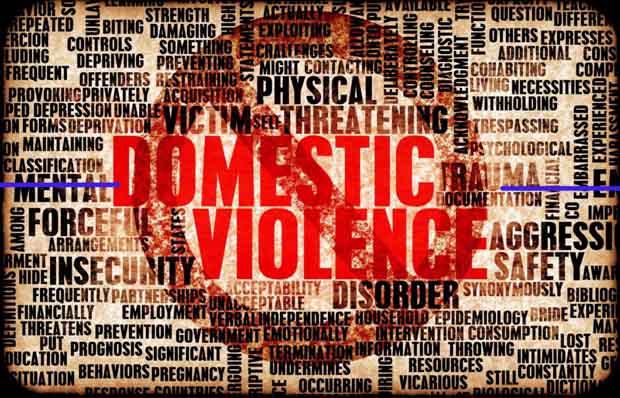Reaching Out to Victims of Domestic Violence
Domestic violence is a healthcare issue of epidemic proportions, as well as a blatant violation of victims’ human rights. During the last 30 years, the impact of domestic abuse has been shattering to victims, their families and the communities they arepart of.
The most recent report of the World Health Organization on the prevalence and health consequences of intimate partner violence (IPV) paints a grim picture of the global situation:
- 35 percent of women worldwide have been the victim of intimate partner violence and/or non-partner intimate violence.
- 30 percent of women who have been in a long-term relationship reported physical and/or sexual abuse by their partner.
- 38 percent of all murders of women are committed by their sexual partner.
In the United States, intimate partner violence affects more than 32 million Americans every year. 4 in 5 victims are women – with most victims belonging to the 18-24 and 25-34 age groups -, but only 1 in 4 report the abuse to the police. 24 people per minute are battered, beaten or sexually abused by their intimate partner, losing 8 million work days per year and costing the economy a staggering $8.3 billion per year in direct and indirect medical expenses. These costs include $6.2 billion for physical assault, $461 million for stalking,$460 million for rape, and $1.2 billion in lost lives.
As statistics by the Centers for Disease Control and Prevention indicate, a significant percent of men (13.8 percent) and women (24.3%) in the U.S. have fallen victims of severe physical violence in their lifetime. Aside from injury and death, the damage and impact of abuselinger long after the bruises are gone.
Health disorders associated with intimate partner violence include respiratory illnesses, cardiovascular disease, irritable bowel syndrome, migraines and chronic pain syndromes, whereas psychological effects of domestic assault can lead to depression, anxiety, paranoia, antisocial behavior, fear of intimacy and inability to trust future partners. Women who have been physically and sexually assaulted are more likely to consider suicide, engage in high-risk sexual behavior or use harmful and illegal substances.
How Doctors Can Help IPV Victims
 Health care providers could play a critical role in helping domestic violence victims. They can ensure the victimsreceive the immediate medical care they need, and also assist in collecting thedata necessary to pursue legal action against their attackers and make sure they never strike again.
Health care providers could play a critical role in helping domestic violence victims. They can ensure the victimsreceive the immediate medical care they need, and also assist in collecting thedata necessary to pursue legal action against their attackers and make sure they never strike again.
Over the last years, significant efforts have been made to improve the manner in which the health care community addresses domestic violence issues. Nowadays, doctors’ medical documentation of abuse – if accurate and comprehensive – can be of significant help as evidence in legal proceedings, assisting victims of abuse obtain the legal compensation they seek.
The victim’s criminal defense attorney can use the medical documentation of abuse, in addition to police reports, as evidence for obtaining immediate legal remedies, such as a restraining order, or to ensure that the victim will be able to access public housing, welfare and insurance.
Domestic violence victims lead lives of desperation, pain and constant fear by no fault of their own. Hopefully, through a concerted effort bythe government, together with local authorities and sexual violence support services to increase intervention and prevention training, people of all ages will learn aboutthe debilitating, long-term consequences of domestic abuse and perhaps put an end to it.
About the Author
Andrew M. Weisberg is a criminal defense attorney in Chicago, Illinois. A former prosecutor in Cook County, Mr. Weisberg is a member of the Capital Litigation Trial Bar, an elite group of criminal attorneys who are certified by the Illinois Supreme Court to try death penalty cases. He is also a member of the Federal Trial Bar. Mr. Weisberg is a sole practitioner at the Law Offices of Andrew M. Weisberg.







 Blog Home
Blog Home 










